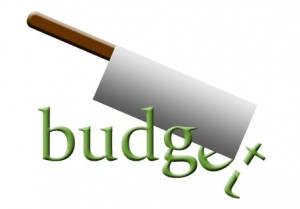House D budget: Cuts, delays, but no sales tax hike
 Majority House Democrats launched the endgame of the election-year 2012 legislative session Tuesday, unveiling their plan to close a billion-dollar budget gap.
Majority House Democrats launched the endgame of the election-year 2012 legislative session Tuesday, unveiling their plan to close a billion-dollar budget gap.
They propose doing this by shifting $405 million in K-12 payments into the next biennium; creating a few new taxes; shedding some revenue-sharing with local government; and cutting higher education, social and health services, inmate supervision, parks, State Archives and other programs.
The proposal includes some new revenue, including $18 million from a new tax on mortgage bankers and $13 million by taxing manufacturers of roll-it-yourself smokes. It does not, however, require a half-cent increase in the state sales tax that Gov. Chris Gregoire had proposed for a springtime election before the state’s economic picture brightened recently.
The plan also does not require 24 furlough days by state employees, as House Republicans had proposed, nor does it cut salaries of state workers and teachers or charge them more for their health coverage. The budget cuts the state payroll by 1,554, including about 900 layoffs due to voter approval of a 2011 initiative privatizing liquor retail.
In all, House budget Chairman Ross Hunter said, it’s a “workable solution that doesn’t do long-term harm to our state.” In describing the state’s descent into red ink in recent years, he said “What is obvious is that we can no longer afford many existing expenditures,” particularly with a looming court mandate to ramp up K-12 support from the state level.
One change, he noted, is that the state must wean local governments from state appropriations.
Hunter said the proposal does not “securitize” future revenue streams as a way to pay for today’s spending, nor does it skip any pension contributions.
He said education suffers “no significant damage,” such as the governor’s idea of shortening the school year and levy equalization, subject to restoration with the sales tax vote. Higher education, though, does take a $65 million hit ($35 million community colleges, $30 million four-year colleges) and $10 million from state need grants. The plan adds back $14 million for high-demand degree programs.
Health care and human services are cut $222 million, but the Basic Health Program and Disability Lifeline are saved.
The State Conservation Commission is abolished and parks are reduced again.
Administrative cuts are taken in agencies, including a 10 percent reduction in billings to the State Archives (about $794,000), and an education program for nonprofits and others who raise money for charity.
The House Ways & Means Committee scheduled a public hearing later Tuesday and the full House is likely to vote on the budget by week’s end. The measure, House Bill 2127, as amended, would then head to the Senate, where a coalition of Democrats and minority Republicans are working on their own version. House-Senate negotiators, with input from the governor, then will iron out the details of a common budget.
The 60-day session is scheduled to adjourn by March 8.